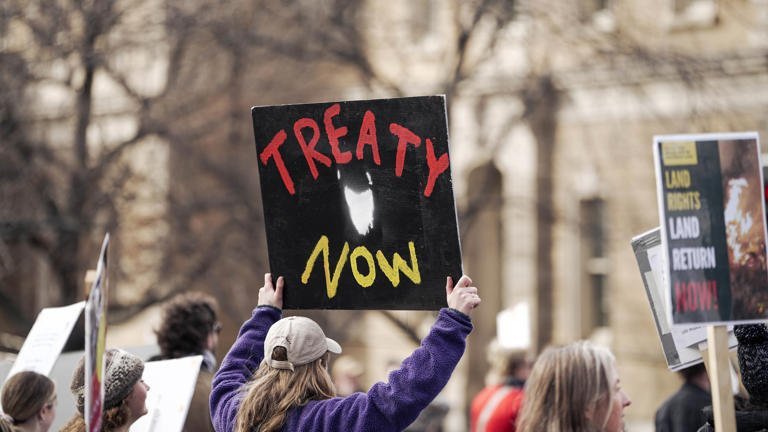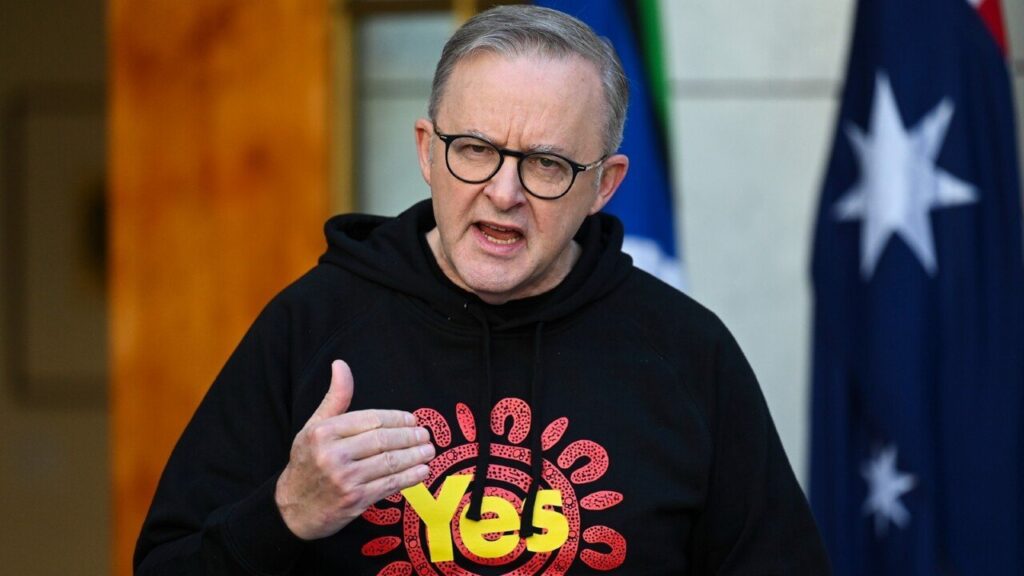Victoria’s Groundbreaking Indigenous Treaty Sparks Fierce Debate: ‘Grave Disrespect’ Claims Fly as Referendum Call is Slammed
- Victoria becomes first Australian state to introduce treaty legislation, but expert warns others may not follow suit for years
- Leading ‘no’ campaigner Warren Mundine demands treaty be put to a referendum, sparking fiery response from Premier Jacinta Allan
- Landmark agreement grants Indigenous representative body decision-making powers, but mistruths and misinformation surround the proposal
Victoria has taken a historic step forward by introducing treaty legislation to parliament, making it the first state or territory in Australia to do so. However, the move has sparked a heated debate, with some calling for a referendum and others accusing opponents of showing grave disrespect to the Indigenous community.
UNSW law associate professor Harry Hobbs warned that it may take years for other jurisdictions to follow in Victoria’s footsteps, citing the complex nature of treaty negotiations. “The Victorian model, if it works and is seen to be effective, could certainly suggest a path forward for other governments across Australia,” he said.
Warren Mundine, a prominent ‘no’ campaigner, has sparked controversy by calling for the treaty to be put to a referendum. However, Premier Jacinta Allan was quick to shut down the idea, saying the state Labor government’s commitment to treaty was on the ballot at the 2018 and 2022 elections. “These questions about political processes, about putting more roadblocks in the way, are not coming from people who support treaty,” she said.
“It’s coming from people who oppose it, who don’t want to see the better outcomes that treaty delivers.” Ms Allan accused those peddling misinformation about the treaty of showing grave disrespect to the Victorian community.

The treaty, which is expected to cost around $300 million over eight years, will grant an Indigenous representative body permanent decision-making powers on initiatives and services relevant to Aboriginal Victorians. Public school students will be taught about Aboriginal experiences, and a future apology will be made in parliament to the state’s first inhabitants.
Federal Education Minister Jason Clare has expressed support for the move, saying all states and territories will “have a look” at Victoria’s approach to embedding truth-telling in public school classrooms. Senator Lidia Thorpe has also called on the federal government to establish a truth-telling body to lay the groundwork for treaty at the national level.

